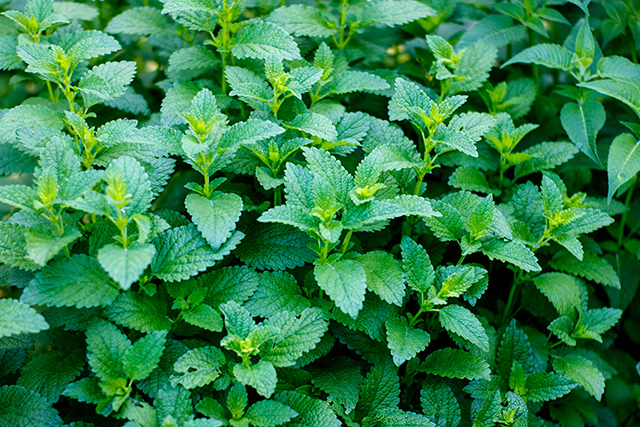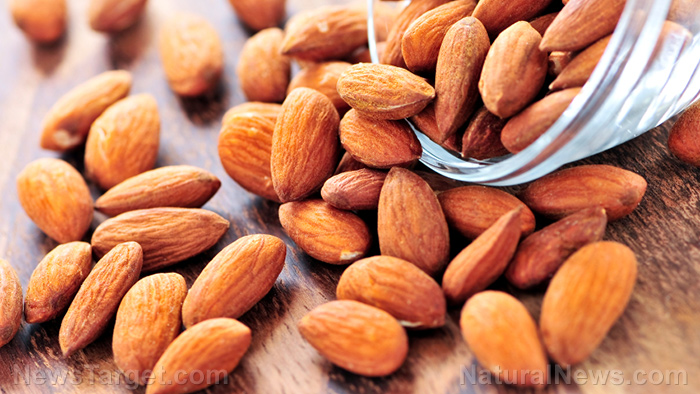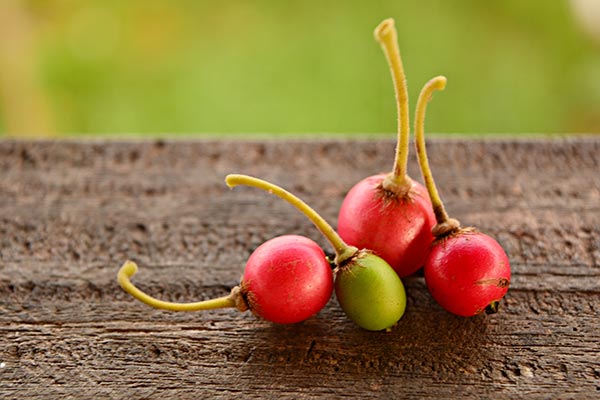Lemon balm helps improve gut motility, says research
04/29/2020 / By Evangelyn Rodriguez

Melissa officinalis, more commonly known as lemon balm, is a culinary herb known for its lemon scent. It belongs to the mint (Lamiaceae) family and is native to Europe, West Asia and South Africa. Besides its many uses in the kitchen, lemon balm is also well-suited for various medicinal purposes. In fact, this herb has long been used in traditional medicine for relieving stomach-related complaints, improving mood and enhancing cognitive performance.
Despite its widespread use, particularly for treating digestive disorder, very little is known about how lemon balm affects the gastrointestinal (GI) tract. Hence French researchers decided to determine the herb’s mechanism of action by testing it on different segments of the GI tract of mice. They also determined the chemical composition of lemon balm. They reported their findings in an article published in the Journal of Medicinal Food.
Lemon balm is a natural antispasmodic
According to the researchers, the European Medicines Agency acknowledges lemon balm as a natural remedy for the symptomatic treatment of mild GI complaints, such as bloating and flatulence. The European Scientific Cooperative on Phytotherapy, meanwhile, recognizes the herb as a valid treatment for symptoms of digestive disorders, such as minor spasms.
Research suggests that functional disorders that affect the GI tract mainly have something to do with motility and acid production. However, while numerous studies have explored lemon balm’s decades-long use as a digestive remedy, its effects on gut motility is scarcely documented. The few reports that exist on the subject are also often contradictory.
Upon reviewing these studies, the researchers found that their results were influenced by various factors, such as the parts of the gut used for testing, the species from which the gut specimens were extracted and the extract used. In particular, the researchers noted that most of the studies used lemon balm extract that is a constituent of a marketed fixed combination of nine herbal extracts.
Hence for their study, the researchers obtained a hydroethanolic leaf extract (HLE) from fresh lemon balm, which they used for their experiment. They tested this extract on different segments of the GI tract of mice. They also analyzed the phytochemical content of the HLE to identify which compound is responsible for its beneficial effects.
The researchers reported that the HLE had site- and dose-dependent effects on the contractile activity of the GI tract. Specifically, the HLE influenced the motility response in the jejunum, the middle segment of the small intestine where nutrients from food are absorbed, and the ileum, the last part of the small intestine that connects it to the large intestine. The HLE, however, had no effect on the antrum, the lower part of the stomach that holds broken-down food, and the colon.
On the other hand, chemical analysis of the HLE suggested that lemon balm’s effects on the intestines may be due to certain phenolic compounds, especially rosmarinic acid. Rosmarinic acid is commonly found in herbs from the mint family, such as rosemary and common sage. The antioxidant and anti-inflammatory activities of rosmarinic acid is said to be effective for asthma and allergic disorders like allergic rhinitis, otitis media, chemical sensitivity and other allergen-induced responses.
Based on these findings, the researchers concluded that the spasmolytic properties of lemon balm are what helps it relieve symptoms of digestive disorders.
Lemon balm as a natural remedy
Lemon balm has been considered a calming herb since ancient times. Historical records show that, even before the Middle Ages, traditional healers have been using lemon balm steeped in wine to improve mood, accelerate wound healing and even treat poisonous insect bites. The herb has also found use as an adaptogen that reduces stress and anxiety. Other traditional uses of lemon balm include for improving sleep and appetite and easing pain and discomfort caused by indigestion.
Today, lemon balm has retained its use as an herbal remedy for the same ailments. When used in combination with herbs like valerian, chamomile and hops, it can induce relaxation and promote sleep. Lemon balm is also a common ingredient used in topical creams for cold sores caused by oral herpes. Other notable uses of lemon balm are as an antibacterial and as an herbal supplement that helps improve cognitive function and decrease agitation in people with Alzheimer’s disease.
Lemon balm is a versatile culinary and medicinal herb that’s great to have in your kitchen as well as in your garden. Learn how to grow lemon balm and other useful herbs at GrowYourMedicine.com.
Sources include:
Tagged Under: alternative medicine, digestive disorders, digestive health, food cures, food is medicine, functional food, herbal medicine, Herbs, Lemon Balm, natural cures, natural medicine, phytonutrients, remedies, research, Rosmarinic acid, spasmolytic
RECENT NEWS & ARTICLES
COPYRIGHT © 2017 NATURAL MEDICINE NEWS



















